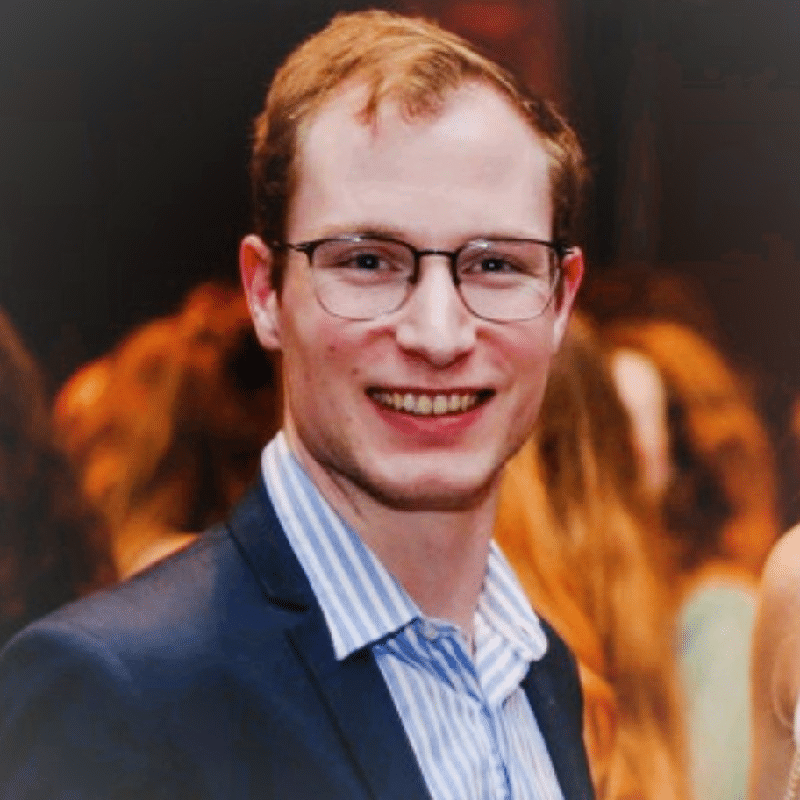
UK Summer School , 2011
Neil McCallum
Senior Translation Project Manager
Neil took part in a Sutton Trust Summer School in 2011 and went on to study languages at university. Having studied and...“I’ve lived in Croydon, South London, my whole life. My grandparents were Greek Cypriot immigrants who came to the UK, working mainly in the food and drink sector. Their dedication instilled a really good work ethic in me. My parents were both very vocational, my dad went to work in the family warehouse and my mum is a beauty therapist, but they encouraged me to go to university, which had always been my ambition.”
“I’d always known I wanted to go to university and that I was interested in law. I wanted to be a solicitor, to have a job with lots of responsibility, and impact people’s lives. I had loads of ambition and ideas, but not the networks I needed to get me where I wanted to be. So, when I heard about Pathways to Law I thought, “this is perfect for me!”
When I was accepted onto the programme at UCL, I was excited but also a bit apprehensive as I had put a lot of expectations on myself and what taking part in the programme could lead to for me. It felt quite intimidating to be there, but I gradually warmed to the experience. What I first thought of as something I was just doing for my career and my CV actually helped me build soft skills like teamwork and communication, and I made friends with people I’m still in touch with now.
One massive thing that Pathways brought me was an understanding of the different ways you can become a lawyer, like the fact that you can work at a law firm without qualifying as a lawyer. It instilled in me that I didn’t need to commit to just one path, but that I could experiment with lots of different ideas.”
“I can honestly say that Pathways to Law changed my life. Because I was on the programme, I was offered an reduced grade offer to study at the University of Exeter and my experiences there shaped me and lead me to the path I’m on now.
At Exeter I decided to do a BSc in Politics and International Relations. I flirted with the idea of studying law at university, as I found corporate law and tax law interesting, but then I realised that academically, political science was my passion. While I was at university I learned to code and discovered my love of data science. I considered doing a law conversion course straight after university, but then I realised I was more interested in the new skills I’d accumulated. So, I did internships in digital policy, in social research and in the civil service.
One of the ways I explored these new skills was through joining the charity upReach. I heard about it through the Sutton Trust and thought it acted like a really nice follow-up programme, especially for people who feel a bit lost after their Pathway or Summer School. upReach helped me get internships and other opportunities as well as getting me more involved with social mobility awareness. I also became the President of the society they had on campus.
Currently, I’m in my first of six rotations on my grad scheme at Kantar, a global data analysis and insights consultancy. This first rotation is to do with operations and project management and I’m going in at the deep end and managing my own projects. It’s terrifying, but one of them is helping an AIDs charity improve their data collection, which is amazing. I’ll rotate every four months and will also get a chance to experience data analytics, marketing, sales, product delivery and other parts of the business. I’ve learned I don’t need to commit to one thing while I’m still young, but rather take a path where I can experiment with lots of different options.”
“Long-term I would like to do a Master’s in communications and explore data science further. I’m particularly fascinated by the analytics of social media companies like Facebook and Twitter, both from the technical perspective and from an advocacy point of view because of the way their usage can influence elections. For the moment, however, I’m focusing on building my knowledge base and exploring my options instead of heading directly for my targets.”
“Put your hand up and put yourself forward for things. It’s scary but so worth it. If you come from a less-privileged background, you almost need to force yourself out there. But once you put yourself forward, you realise that that different perspective you bring is something you can sell to a university, a business, an employer. It’s what makes you unique and gives you the power to stand out in a way that other people can’t. There’s something quite daunting about it, but there’s also something quite empowering.”
You can get in touch and share your story via [email protected]. Browse our library of alumni stories.